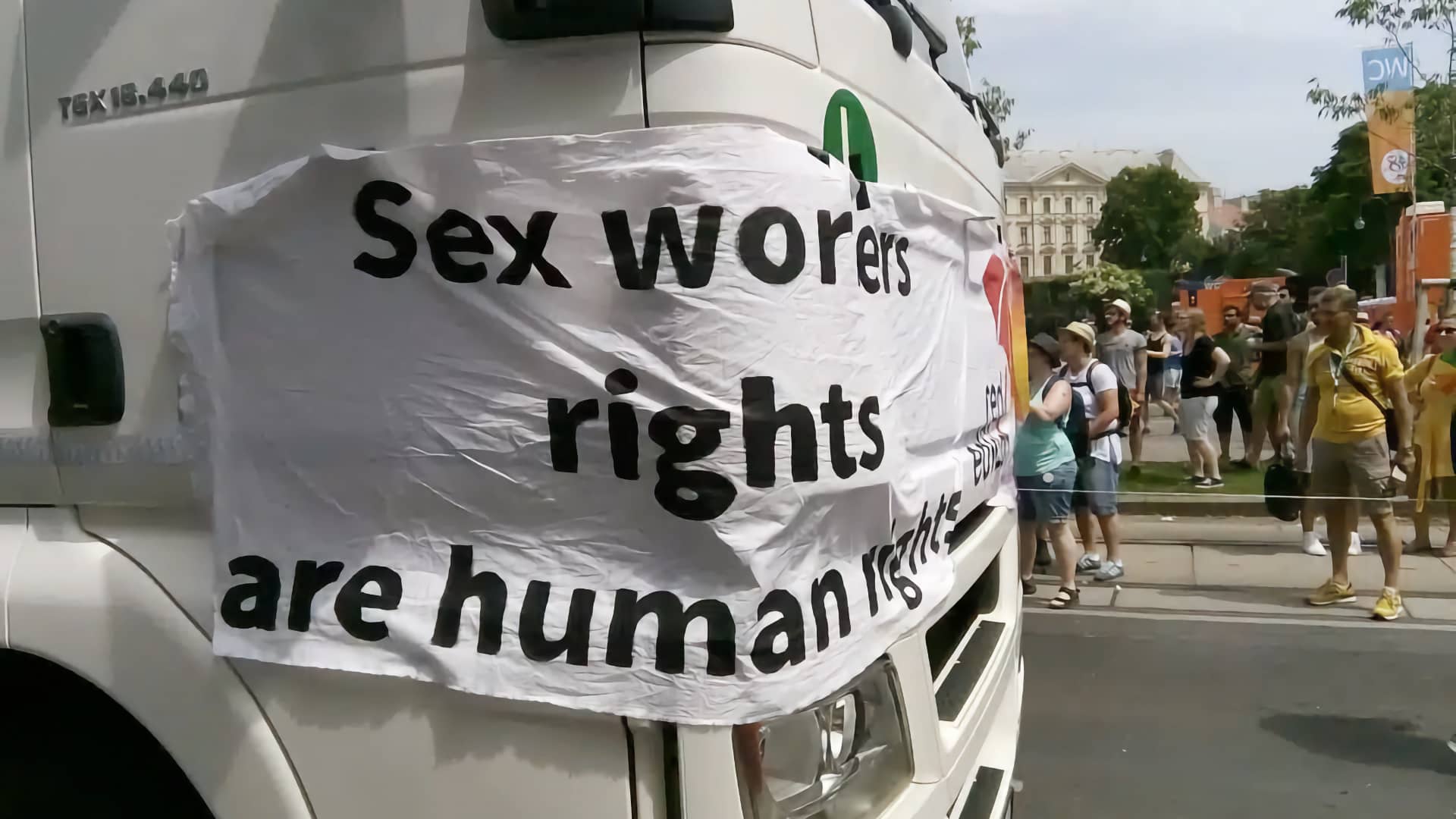Opinion by Maya Linstrum-Newman and Nadine Gloss • May 30, 2024
This article was originally published on PassBlue.
Major progress has been made in the debate on sex workers’ rights through a recent paper, “Eliminating discrimination against sex workers and securing their human rights,” published by the United Nations Working Group on Discrimination Against Women and Girls.
The group was mandated by the Human Rights Council and consists of five experts; it aims to end discrimination against women in law and in practice in all fields from the perspective of countries’ obligations “to respect, protect and fulfil women’s human rights,” it says.
In advocating for the full decriminalization of adult voluntary sex work based on international standards for strengthening women’s physical autonomy and sexual and reproductive health, this guidance document is an important step toward a human rights-based approach to sex work for all UN bodies to follow.
Unlike what we perceive as sensationalist and reductive claims made by many anti-sex-work groups, the working group’s paper is grounded in evidence-based research and informed by consultations done with diverse sex workers across several geographical regions. The sex workers who were consulted included those living with HIV and those who have experienced violence, exploitation and abuse under restrictive policy models that criminalize sex work itself or activities associated with sex work. That includes soliciting, advertising, sharing premises with other sex workers, managing or organizing sex work and buying sexual services.
It should be noted that the paper does not deny the injustices that occur in sex work. Instead, it makes clear how punitive laws, policies and practices create and exacerbate environments of violence, risk and abuse of sex workers. They must be understood to be workers, rather than “prostitutes” because they have lives outside of sex work, like most people who work and are not solely defined by their job identities or the circumstances of their work. The term “prostitution” is often used to deny sex workers’ ability to act, think and decide for themselves.
Given the large amount of evidence and the growing consensus among international human rights bodies regarding sex workers, the working group concludes that there is enough proof of the harms inflicted by the criminalization of sex work and calls for full decriminalization as the best model to ensure the rights of sex workers. Under decriminalization, all forms of sex work-specific criminal and licensing laws intended to sanction sex workers, clients and people who operate with sex workers are removed.
Instead, the same labor, health and safety protections are guaranteed to sex workers as to other workers. A country can have fully decriminalized sex work only if all legal penalties have been removed for all aspects of the trade, including selling, buying and managing/organizing.
The working group found that “in jurisdictions which criminalize sex workers, violations of their rights are numerous.” This finding is supported by international best practice guidelines and a substantial body of evidence. Decriminalization is the legal framework favored by most sex worker-led organizations worldwide as well as leading authorities in health and human rights.
In New Zealand, after the decriminalization of sex work in 2003, sex workers have reported improved working conditions and negotiating power and more confidence in asserting their legal and employment rights. Sex workers in New Zealand also report better relationships with law enforcement and an increased likelihood of reporting incidents of violence to the police.
In Australia, the New South Wales (NSW) Ministry of Health has found that the reforms that decriminalized adult sex work “improved human rights; removed police corruption; netted savings for the criminal justice system; and enhanced the surveillance, health promotion, and safety of the NSW sex industry.”
Most important, the working group emphasizes that decriminalization does not impede national efforts to mitigate human trafficking, citing the 2020 report of the UN special rapporteur on trafficking in persons. Indeed, decriminalization helps efforts to combat trafficking and exploitation in the sex work sector. The UN special rapporteur on contemporary forms of slavery has also recently called for the full decriminalization of sex work to prevent further human rights violations in the industry.
As the working group’s paper was drafted, members of the Sex Worker Inclusive Feminist Alliance, a collective of eight feminist organizations worldwide that support the inclusion of sex workers in the women’s movement, and sex workers from the Global Network of Sex Work Projects (NSWP) were involved in consultations. Sex workers from such organizations as the Kenya Sex Workers Alliance, the European Sex Workers’ Rights Alliance, Plataforma Latinoamérica de Personas que Ejercen el Trabajo Sexual, the Guyana Vulnerable Populations Alliance and the Asia Pacific Network of Sex Workers each briefed the working group on the challenges facing their constituents.
The challenges include the conflation of sex work and trafficking; an increasingly strong and coordinated anti-sex work and antigender diversity movements; and rising calls for the criminalization of sex work. These calls seriously threaten sex workers’ rights and fly in the face of the abundant evidence of increased discrimination and vulnerability to violence in the UN’s 193 member countries, where at least one aspect of of sex work is criminalized in some form.
The guidance paper exemplifies meaningful inclusion of sex workers’ voices in the drafting of policy recommendations. This inclusion will lead to changes that improve the conditions of people who do sex work, particularly those most at risk of violence, poverty and poor health. The working group joins several UN agencies that have long called for the decriminalization of sex work, including the UN Population Fund, the World Health Organization, the UN Development Program and the UN Program on HIV/AIDS (UNAIDS).
This is an opinion essay.

